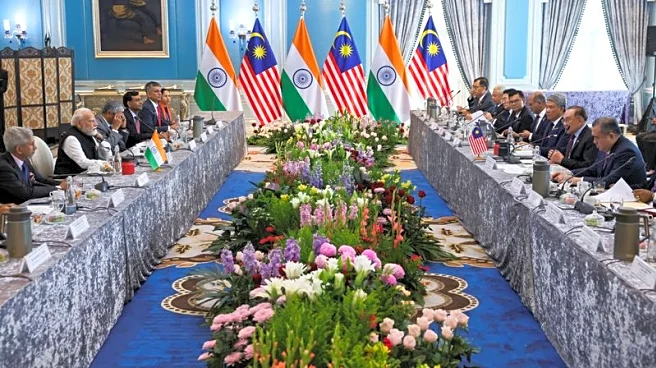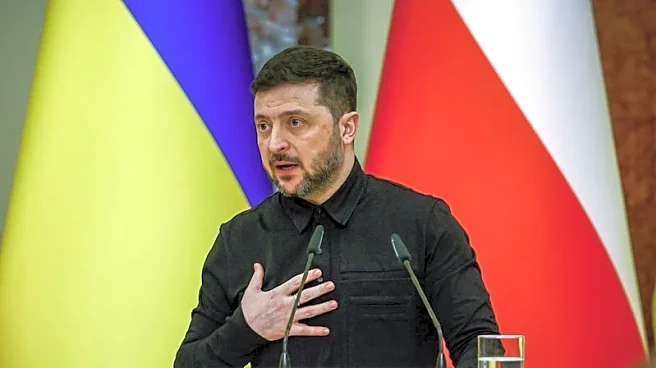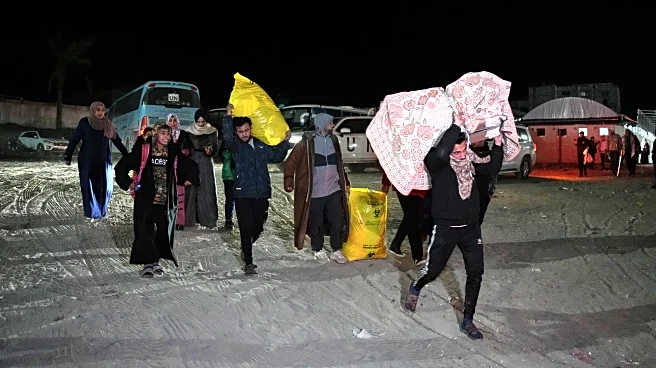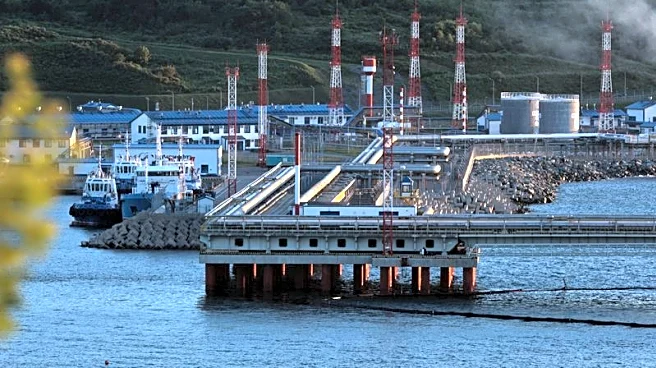What's Happening?
The United States has presented a draft proposal to several members of the UN Security Council regarding the formation of an international stabilization force for the Gaza Strip. The draft, which has not been formally submitted, aims to establish a force in coordination
with Arab and Muslim countries under a 'Board of Peace' led by President Trump and former British Prime Minister Tony Blair. A key concern for Israel is the language used in the draft regarding the disarmament of Hamas and other terrorist groups in Gaza. The term 'decommissioning' is used instead of 'disarmament,' which may allow Hamas to retain its weapons. Additionally, the reliance on the United Nations for establishing the force could impact the mandate and rules of engagement, potentially hindering Israel's objectives.
Why It's Important?
The proposal's language and reliance on the United Nations could affect Israel's ability to ensure Hamas is disarmed and prevent the group from rebuilding its military capabilities. The situation is reminiscent of the UNIFIL experience in southern Lebanon, where international forces failed to disarm Hezbollah. This raises concerns about the effectiveness of the proposed stabilization force in achieving its objectives. The draft's implications extend beyond Gaza, as Israel is also focused on Hezbollah's activities in Lebanon, particularly in the Bekaa Valley, where smuggling operations are underway. The proposal's outcome could influence regional stability and Israel's security strategy.
What's Next?
The draft proposal is still under negotiation, and its final version has yet to be agreed upon. The United States is not seeking a Security Council resolution under Chapter VII, which would authorize the use of force. The next steps involve further discussions among Security Council members and potential revisions to the draft. Israel will likely continue to monitor Hezbollah's activities in Lebanon and pressure the Lebanese government to act against the group's military infrastructure. The international community's response to the draft and its implications for regional security remain to be seen.
Beyond the Headlines
The proposal highlights the complexities of international diplomacy and the challenges of balancing security concerns with humanitarian efforts. The language used in the draft reflects broader geopolitical dynamics and the influence of major powers in shaping regional outcomes. The situation underscores the importance of clear and effective communication in international agreements to prevent misunderstandings and ensure the achievement of intended objectives.
















